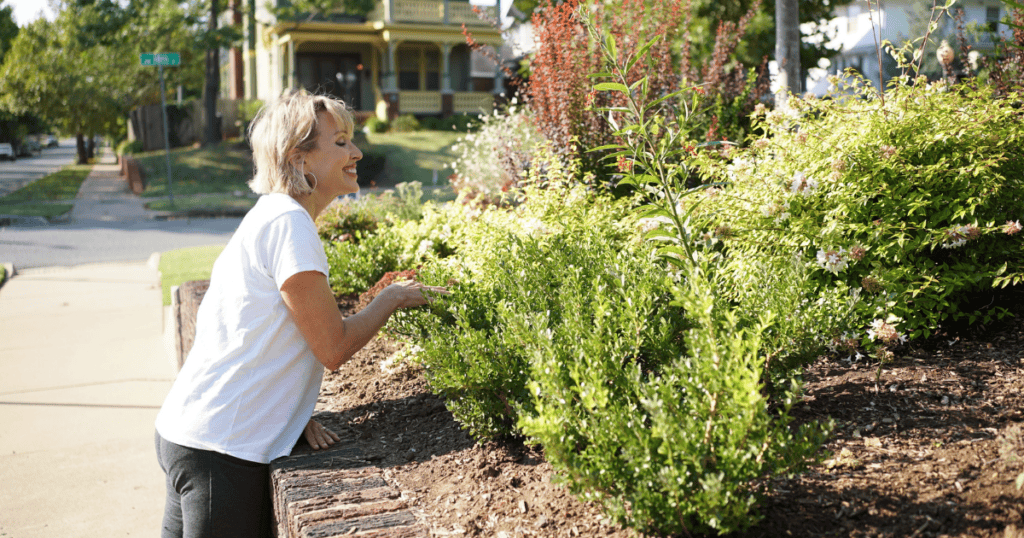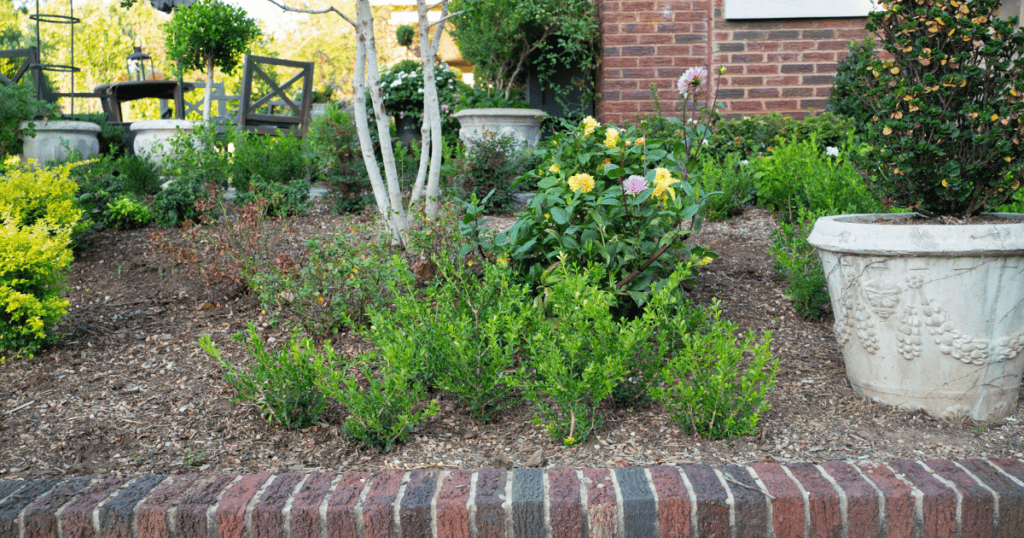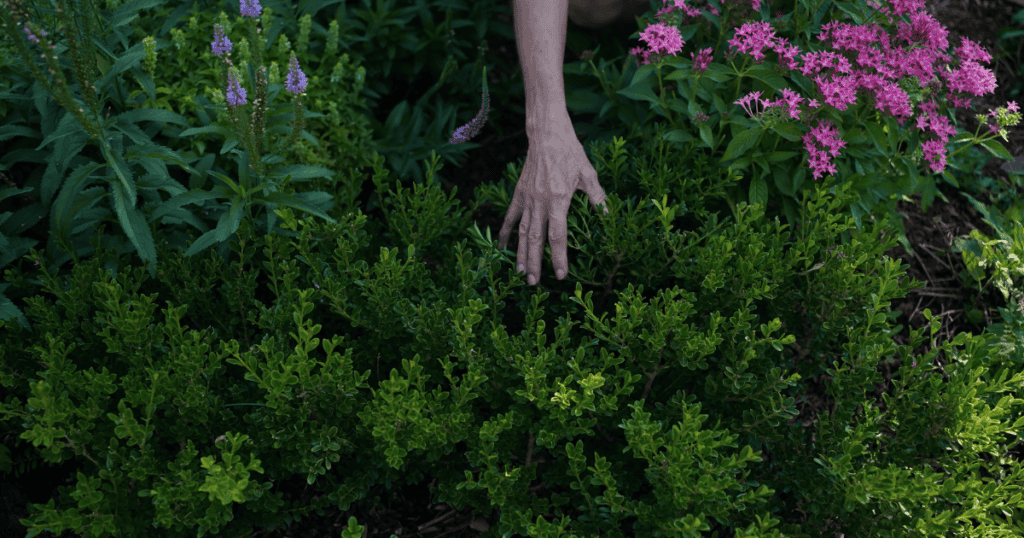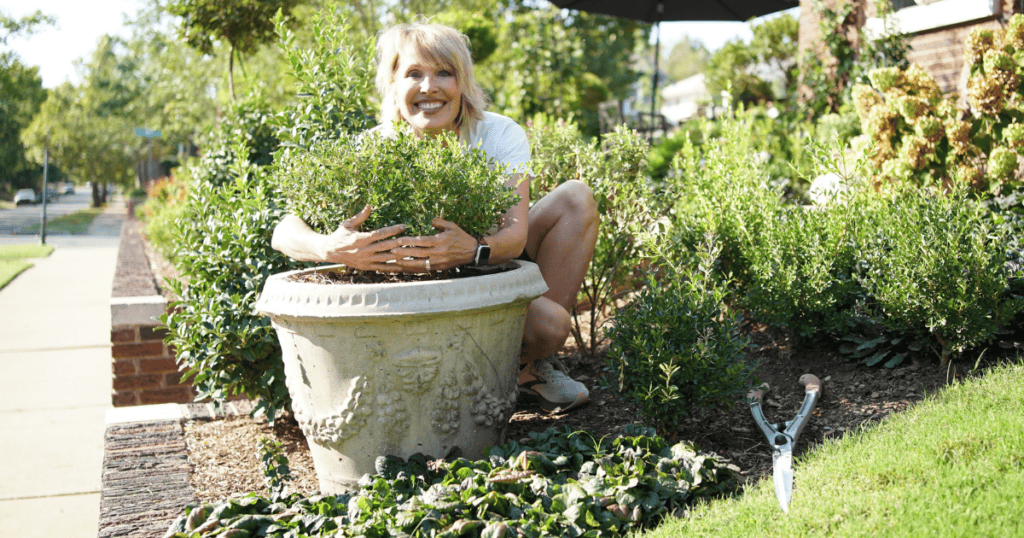Boxwoods are the cornerstone of gardens across the world, providing structure and evergreen color in formal and informal settings alike. Whether you shape your boxwood into hedges and topiary or use them as an architectural element in perennial beds and borders, you want your boxwood shrubs to stand up to environmental stress and pest pressure. The breeders of the Better Boxwood collection combined improved disease resistance and cold hardiness with handsome plant forms to create boxwood plants that simply perform better in the garden. Here’s a look at how to use these garden heroes in the landscape and which popular varieties they can replace for more resilient plantings.

Babylon Beauty™
With a compact growth habit and little need for pruning, Babylon Beauty™ is incredibly versatile in the landscape. It makes a wonderful selection for mass plantings, mixing into beds and borders, and lining foundations. Babylon Beauty™ grows three feet tall and four to five feet wide, making it an excellent substitute for dwarf English boxwood, Buxus sempervirens ‘Suffruticosa’, which is among the most widely planted boxwood varieties despite being highly susceptible to boxwood blight.
Here are a few other varieties Babylon Beauty™ can be used in place of:
- Chicagoland Green® (Buxus hybrid ‘Glencoe’) – Renowned for its cold hardiness, this variety has shown susceptibility to boxwood blight. Babylon Beauty™ is equally cold hardy (Zone 5-9) and has improved diseased resistance for more resilient hedges and borders.
- ‘Jensen’ (Buxus sempervirens) – This variety is highly susceptible to boxwood blight, making Babylon Beauty™ a better choice for foundations and mass plantings.
- ‘Green Velvet’ (Buxus hybrid) – This widely grown variety is moderately susceptible to boxwood blight. It comes from a Canadian breeding program that selected for cold hardiness, however Babylon Beauty™ is equally cold hardy and grows to a similar size, providing a disease-resistant option for hedges, massing, and layering.

Renaissance™
This low-growing boxwood plant has the perfect form for shaping into borders, parterres, and knot gardens. Growing just one to two feet tall and wide, Renaissance™ is perfect for boxwood containers. Plants maintain their size and shape with little pruning. Renaissance™ has excellent color retention through winter.
Use Renaissance™ Boxwood in place of:
- ‘Morris Dwarf’ and ‘Morris Midget’ (Buxus microphylla var. japonica) – These two popular varieties of Japanese boxwood are highly susceptible to boxwood blight as well as winter bronzing. In addition to disease resistance, Renaissance™ holds its foliage color much better through the winter.
- ‘Justin Brouwers’ (Buxus sinica var. insularis) – This variety is highly susceptible to boxwood blight. Renaissance™ has a similar growth habit but with greater cold tolerance and disease resistance.
- ‘Grace Hendrick Phillips’ (Buxus microphylla) – A littleleaf boxwood variety, ‘Grace Hendrick Phillips’ is planted for its low, mounding habit and slow growth. Renaissance™ provides better cold hardiness (Zones 5–9) and is less prone to bronzing in winter.

Heritage™
With dense foliage and an upright habit, Heritage™ is the ideal type of boxwood to use in foundation plantings, medium-sized hedges, and for pruning into conical forms, towers, or spirals. Growing three to four feet tall and two to three feet wide, Heritage™ will not outgrow the landscape like similar boxwood varieties.
Try Heritage™ as an alternative to these boxwood varieties:
- ‘Green Mountain’ (Buxus hybrid) – This variety is part of the same breeding program that brought us ‘Green Velvet’ and other cold hardy boxwoods. It shares the same positive and negative traits: good cold hardiness, moderate susceptibility to boxwood blight, and a tendency toward winter bronzing. Given its hardiness (Zones 5–9) and disease resistance, Heritage™ makes a superior selection for topiary, containers, accents, and hedges.
- Jade Pillar™ (Buxus sempervirens ‘Furore’) – This variety has a similar growth habit to Heritage™ and both varieties are excellent for topiary. Consider substituting Heritage™ boxwood for this plant, as Jade Pillar™ is prone to winter bronzing and its blight resistance has not been tested.
- ‘John Baldwin’ (Buxus microphylla) – This littleleaf boxwood has good blight resistance but is not as cold hardy as Heritage™. Both have small foliage and are well adapted to shaping into conical forms and other topiary.

Skylight™
Skylight™ is the fastest growing Better Boxwood variety, and the tallest. Growing taller than wide, it is well suited for shaping into spheres, pyramids, and other forms, but also makes an excellent accent or corner foundation plant. Its tall slender profile is perfect for screening even in narrow spaces.
Skylight™ makes an ideal replacement for:
- ‘Rotundifolia’ (Buxus sempervirens) – This versatile boxwood variety has long been a landscape favorite, but unfortunately is highly susceptible to boxwood blight. Skylight™ is a good substitute for ‘Rotundifolia’ as a backdrop in perennial borders or as a tall hedge or screen.
- ‘Graham Blandy’ (Buxus sempervirens) – Widely used for its columnar habit and dark, glossy foliage, ‘Graham Blandy’ is susceptible to boxwood blight. Skylight™ makes a suitable alternative, with better disease resistance and a faster growth rate. And since Skylight™ tops out around 8 feet, it will not quickly outgrow its home.
- Shadow Sentry™ (Buxus hybrid ‘DSNH 1216’) – Shadow Sentry™ is a newer hybrid with very similar dimensions (6–8’ high x 3–4’ wide) to Skylight™ and many great features, however this variety has not been rated for blight resistance.

